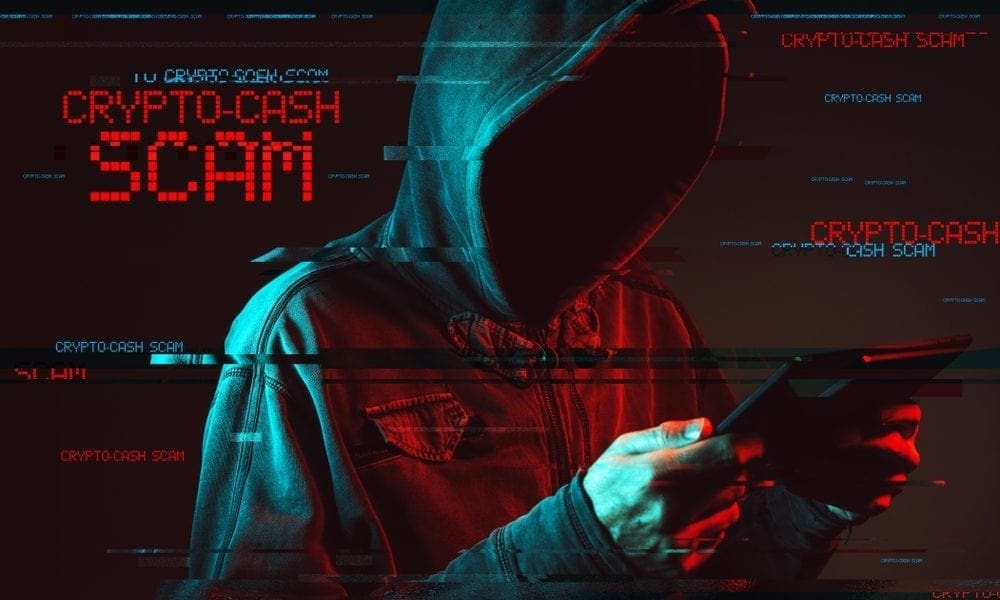Table of Contents
You’ve likely heard about some mind-boggling crypto scams. Maybe you even thought crypto was a scam at first. Whatever the case, you’re about to learn about the biggest crypto scams of all time.
A crypto scam is a fraudulent activity against crypto holders or intending crypto holders. Cryptocurrency scams, like other financial crimes, come in different forms. But they mostly take form in one of two major ways.
This article will discuss the biggest crypto scams in history. We’ll also see the major ways these scams took place, i.e., their modus operandi and how they were exposed.
Let’s dive in.
What is a Crypto Scam?

A cryptocurrency scam is a fraudulent operation run by impersonators or malicious actors who use various means to steal money from unsuspecting investors.
From investment scams and rug pulls to malware, phishing, romance-based scams, and more, scammers continue to tap into their creative side for the wrong reasons. It’s your duty as a crypto investor or enthusiast to learn how to identify crypto scams and how to shield your funds from them.
Types of Crypto Scams
There are different types of scams, but note that all crypto scams take shape in one of two forms.
- Activities or setups that make victims willingly transfer their crypto to malicious con artists. Examples of this type are crypto romance scams, false or fraudulent business/investment opportunities, address poisoning, etc.
- Deceitful or fraudulent schemes that try to get access to victims’ crypto wallets or passwords. An example of this is phishing.
Now, let’s look at the biggest scams pulled in crypto in past years.
5 Biggest Crypto Scams in History
1. OneCoin
Several authorities on the subject matter of crypto scams have crowned the OneCoin scam king of all others.
The scheme was run by Dr Ruja Ignatova, who managed to rip people off billions of dollars in investment by pretending to have created OneCoin, a revolutionary altcoin with remarkable blockchain tech. She, alongside her husband, created packages of financial education that people paid for at different membership levels.
OneCoin turned out to be a huge Ponzi scheme. In 2017, the scheme was exposed as fraudulent and collapsed after making away with tens of billions. The husband and the company’s leaders were arrested while Dr Ruja went Missing In Action. However, in September 2023, BBC reported that the Cryptoqueen has been jailed for 20 years.
In this scam, the scammers used deceit to make crypto enthusiasts willfully invest their money in a non-existent crypto project.
2. Bitconnect
Bitconnect scam is another Ponzi scheme that involves billions of dollars. The scammers, led by founder, Satish Kumbhani, got investors to throw in money by claiming to have a trading algorithm that could not be beaten. They set up a lending and exchange platform and got their users to buy Bitconnect Coin (BCC) with Bitcoin, promising high returns. The scheme used old investors’ money to pay new ones and encourage more to join. They even launched an ICO after a while called BitconnectX.
The platform crashed in 2018 when it was exposed as a Ponzi scheme. It followed the crash of the value of the supposed BCC, which dropped to zero.
Kumbhani has been indicted and faces the repercussions for his crimes.
3. BitPetite
Much like the previous scam, Bitpetite was an exchange platform that promised its investors a high yield on investments. It got users to invest in Bitcoin for daily returns. The founders ran the program for a few months (sources say it ran for six months) in 2017 before it crashed.
The founders made away with investors’ money and have not been found to date. All their social media accounts were deleted, and the money they made away with ran into millions of dollars. The business entity faces a couple of lawsuits even with the leaders in hiding. The Bitpetite lawsuit will be extended to the perpetrators if or when found.
4. Mt Gox
Mt Gox was a top crypto exchange in its time and handled about 70% of Bitcoin transactions at some point. But when it suspended withdrawals due to technical issues in 2014, authorities began to look into it.
Mt Gox was hacked and lost about 850,000 Bitcoins, which was over $450 million back then. Mark Karpele, the CEO, declared bankruptcy and faced the eye of the law. But investors that lost their Bitcoins never got it back.
5. Thodex
This particular scam is somewhat recent, as it happened in 2021. Thodex was a Turkish cryptocurrency exchange founded by Faruk Fatih Özer in 2017. Özer got investors to use his exchange, pooling over $2.2 billion. He promised investors free Dogecoin for putting their money on the exchange.
In April 2021, the platform was scheduled for a 6-hour maintenance, which turned into a 5-day maintenance. But when the issue was probed, it was discovered that the founder had shut down the exchange and made away with 100,000 investors’ money.
To date, Özer is nowhere to be found. He left Turkey and faces an impossible number of years of imprisonment upon return or discovery.
How to Spot a Crypto Scammer.
There are ways to spot a Bitcoin scammer. But apart from Bitcoin, people can be ripped off their crypto in diverse ways. Whether it’s through address poisoning, pig butchering, phishing or any other way, scammers will keep trying. Here are a few ways to spot a crypto scammer to stay safe.
- Carelessly Written White Papers
Always look out for the white paper of a project before you invest. Take some time to also look through the white papers of projects, tokens or exchanges that have been verified and around for a long time to see what an authentic one should look like.
If a white paper is poorly written, it’s safe to assume that the project may be fraudulent.
- Phishing Attempts
Be mindful of emails or messages from seemingly legit crypto exchanges or wallets. If they ask you to provide your seed phrase or private keys, it’s a scamming attempt.
- Unreasonable Promises of High ROI
Any crypto project that promises unreasonably high ROI or high profit in a very short time is suspicious. Legit projects understand that crypto requires patience to see returns. Besides, it’s a volatile venture, so nothing is promised.
- Excessive Marketing
Is the project pushing for investors more than the most popular TV commercials? It’s probably a scam. Legift crypto projects know that a good product markets itself after a while.
Tips to Stay Safe From Crypto Scammers
- Always do proper research before investing in any crypto project.
- Use secure crypto wallets, preferably, cold wallets.
- Stay alert with news of the goings-on in the crypto space.
- Never give out passwords or seed phrases.
- Trade on safe and verified exchanges only.
Bottomline
There you have it – the five biggest crypto scams of all time. Most of them were scams that impersonated and deceived investors to pool in their funds. They were also Ponzi schemes.
Take note of how you can spot a crypto scammer and tips to stay safe. As a general rule of thumb, always do proper research, and when in doubt, do not engage.
Last updated on August 8, 2025

